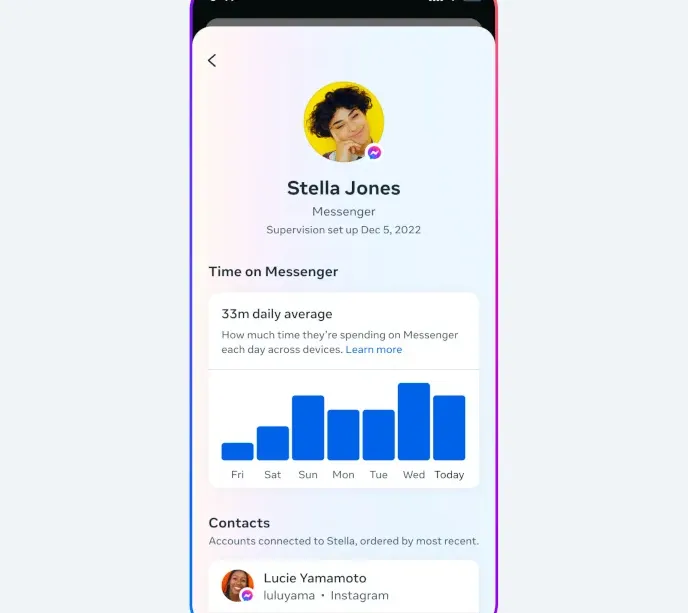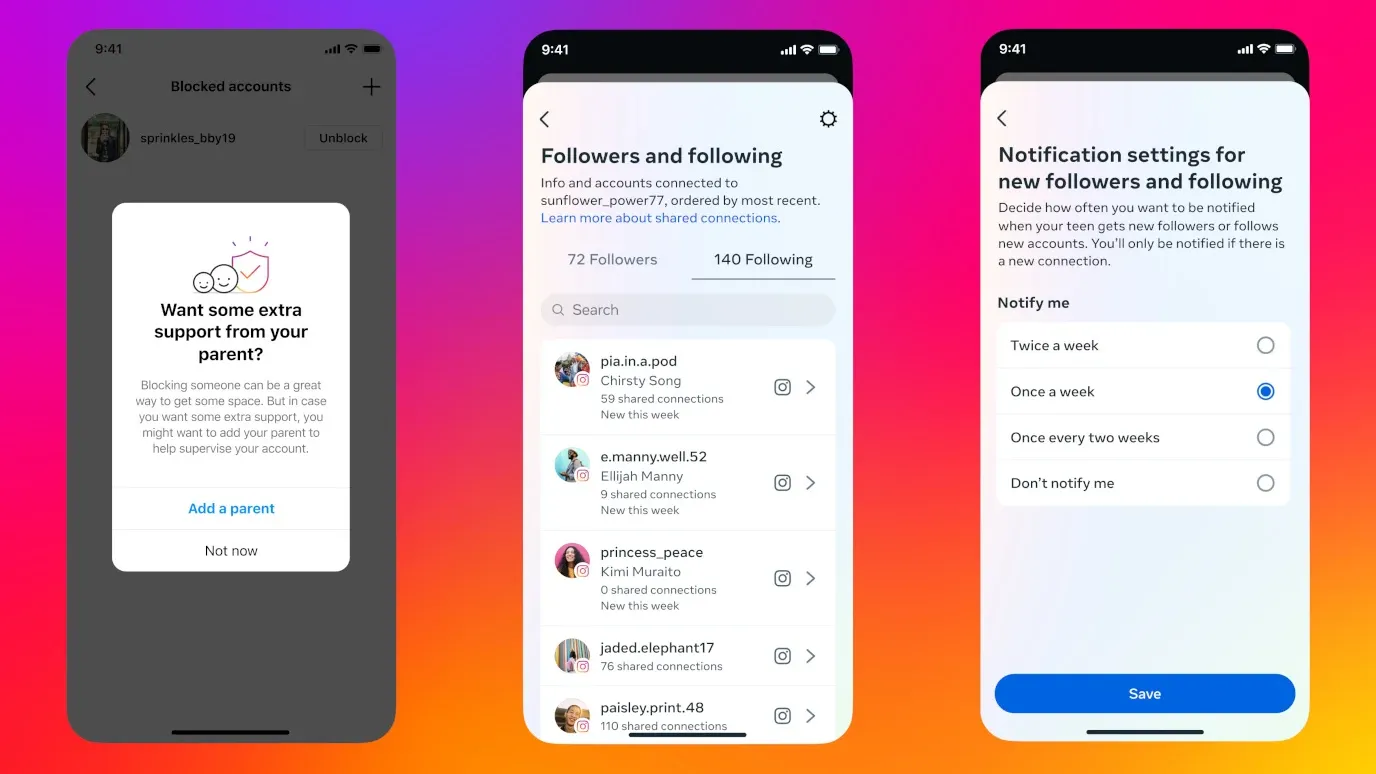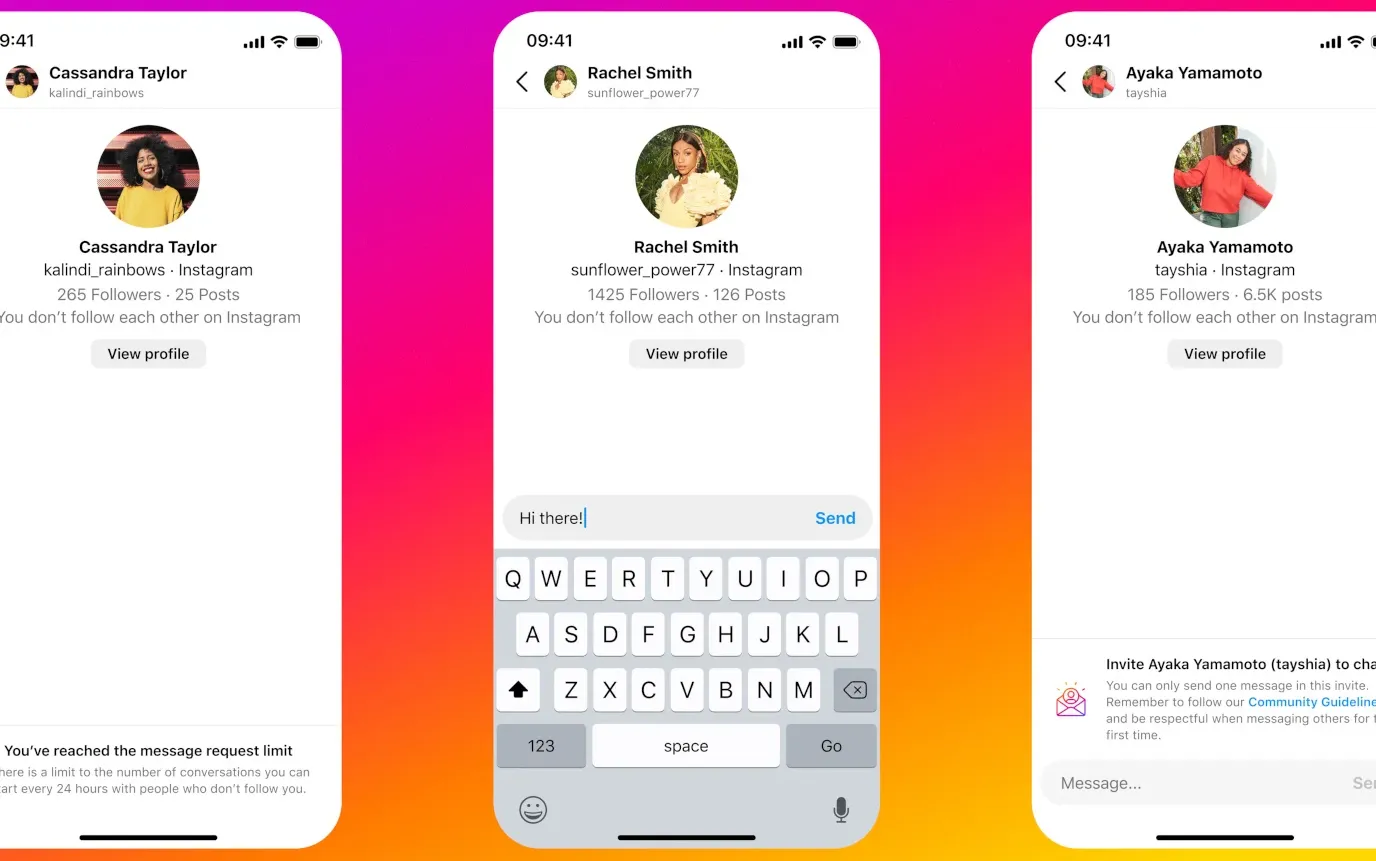Facebook Introduces New Parental Controls for Messenger
Meta has introduced new features to its Family Center that enable parents to monitor and manage their teenagers’ use of Messenger. The updated tools allow parents to track their child’s app usage, privacy and safety settings, and messaging contacts. They can also receive alerts for any modifications made to their teen’s contact list or privacy settings. Furthermore, if their child reports a user to Meta, parents can be notified if their teen decides to share the information with them.
The social networking giant said these are just the first batch of parental control tools coming to Family Center and that it plans to add more over the next year. While they are currently only available to users in the US, UK, and Canada, Meta plans to expand their availability to other regions around the world in the coming months. Note that Facebook has had parental controls on Messenger Kids for years, and these tools are for Messenger’s main app, which is aimed at teenagers between the ages of 13 and 18.

In addition to these new parenting tools, Meta now shows teens a notification after they’ve spent 20 minutes on Facebook, prompting them to set daily time limits. On Instagram, it’s exploring a new nod feature that asks teens to close the app if they’ve scrolled through the reels at night. Meta has also expanded Instagram’s parental controls to show parents how many friends their teen has with the accounts they follow and follow. Plus, teens get a new notification when they’ve blocked someone, encouraging them to add a parent to control their account.

The company also has a few security updates that aren’t aimed at teenagers. Silent Mode, which mutes all notifications and changes the status of a user’s profile, is coming to Instagram in the coming weeks around the world. It’s also currently testing a couple of new features aimed at protecting Instagram users from unwanted DMs. Users must now send an invite to connect with someone who is not following them before they can send a message. Also, they can only send one invitation at a time and cannot send more until the recipient accepts it. These message request invitations are text only and prevent users from sending pictures, videos or audio messages to other users they are not connected to.





